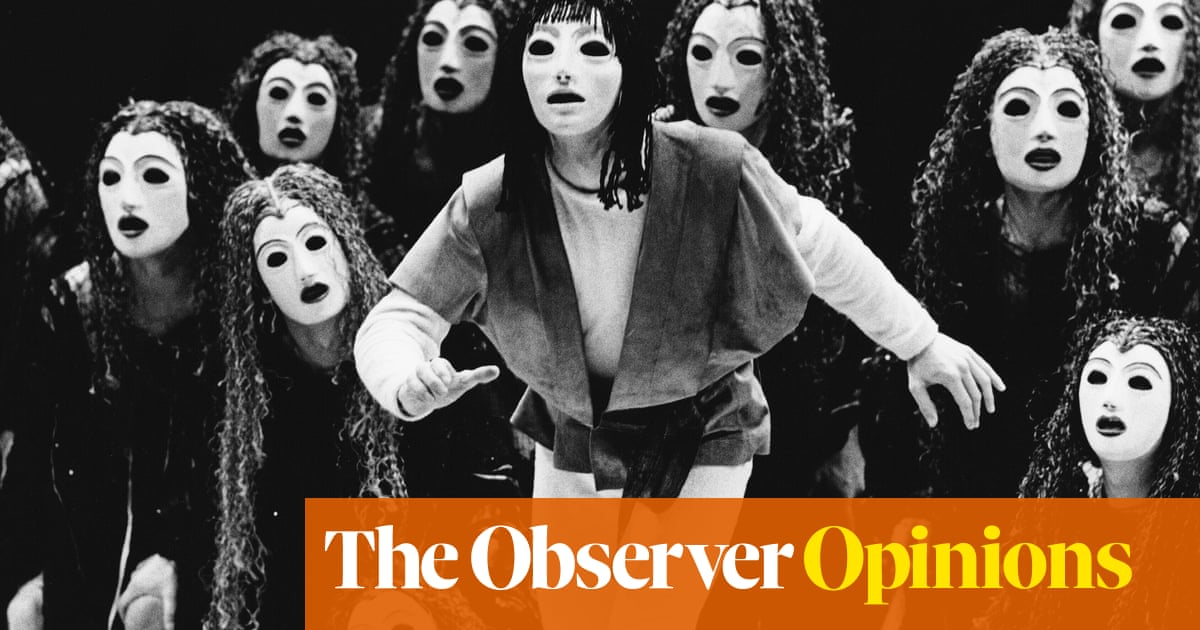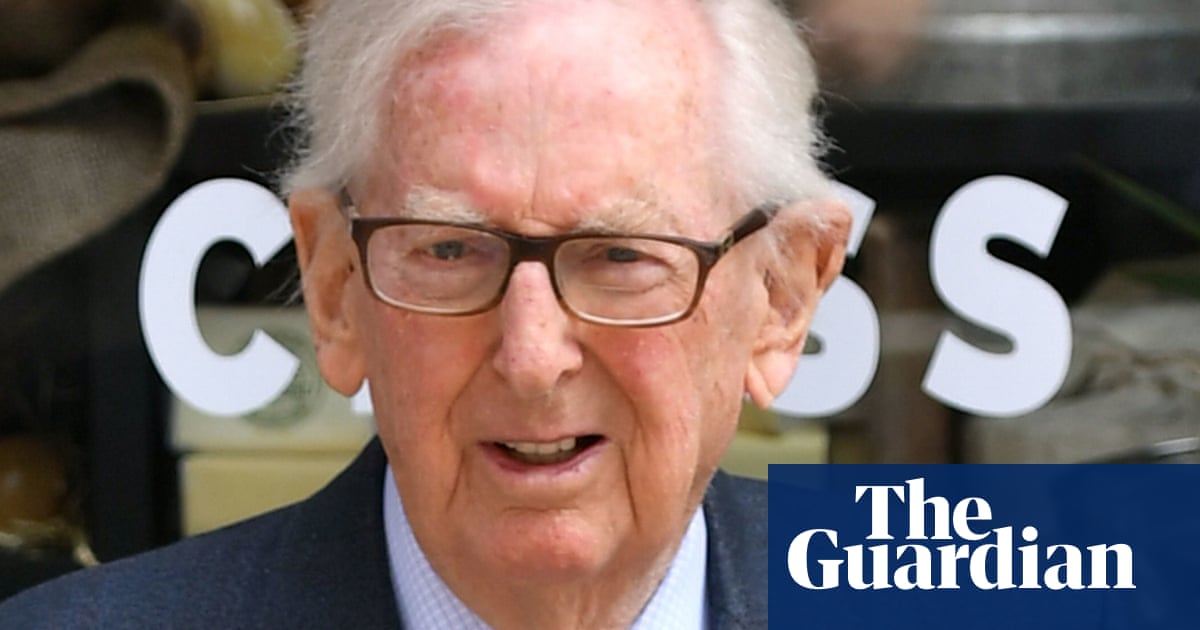
“What the American public wants is a tragedy with a happy ending,” the American critic William Dean Howells once said (at least according to Edith Wharton). Maybe it’s what we all want, now, from our dramas. Who wants to sit down to make-believe tragedy at the end of a day brimming with real tragedy? Let the Netflix show – even if it plays with tragic tropes – end on an intriguingly unresolved note. Let no stage be bestrewn, with the utter finality that we see in Hamlet, with the corpses of pretty much all its cast. (After Hamlet’s ending, no one’s going to be asking for the spin-off series, Fortinbras Rebuilds Elsinore.)
The critic George Steiner declared tragedy dead in 1961, so perhaps its absence is hardly a surprise. One of his most pertinent points was how little purchase tragedy had had since the Athenians invented the form in the fifth century BCE. Tragedy, as a narrowly defined theatrical genre, had flowered at distinct moments, he argued, when both the sociopolitical and theatrical conditions were just right: on the Elizabethan stage, for instance, and in Scandinavia and Russia in the early 20th century.
Do such conditions exist now? It would seem that they do not. Tragedy involves a character’s forward motion – often from greatness to abjection (though Greek tragedy was a much more varied form than either Aristotle argued or the surviving few plays convey). What seems of particular interest in our own moment is different: a retrograde motion, in which the nature of a character is tracked back to its deep origins – as if Aeschylus’s Oresteia was played backwards, and we were first shown Orestes’s madness, and then offered its explanation by way of his family’s history of murdering each other. The “trauma plot”, it has recently been argued, has come to dominate fiction of all kinds, from Hanya Yanagihara’s A Little Life to Karl Ove Knausgaard’s My Struggle.
And yet, tragedy does seem to be wanted and needed – in that tragedies keep being produced on our stages. In London over the past couple of years, despite the many periods of theatre closure, there has been Cush Jumbo’s triumphant Hamlet, James McArdle’s Macbeth and Ian Rickson’s production of Uncle Vanya. In the summer of 2021 – during one of the interludes when theatres opened – I saw Kae Tempest’s version of Sophocles’s Philoctetes, renamed Paradise. It’s a drama about the moral injury caused by war. But, in that moment, it also seemed to speak powerfully about physical distress and pain, and isolation, and the difficulties of a return to “normality”.
“When you write a play,” playwright Zinnie Harris told me recently, “you want to give the audience an experience that rehearses what might happen to us collectively or individually. You are working with factors that are both internal and external to the character.”
Greek tragedy is deeply interested in playing with the limits of human agency against a backdrop in which the gods are all powerful, vindictive and often arbitrary. Oedipus starts out respected, powerful and admired, and within the real-time course of the drama, ends up self-blinded and exiled. The knife’s edge on which he and other characters in Greek tragedy live, certainly resonates strongly with our unstable times, when, but for an accident of birth and a twist of fate, any of us might be leaving a once comfortable life to set out on an inflatable boat across a perilous sea (which is actually the premise of one of Harris’s plays, How To Hold Your Breath). Even so, Harris resists complete bleakness. It’s better, she told me, to show “how we can keep moving in the face of whatever comes”. And, as she says, this is a perfectly reasonable Greek-tragic position: Aeschylus’s Oresteia does not end with a pile-up of corpses but a new political order, and a suggestion of a way out of a violent cycle of bloodletting.
There has been a recent exception to the rule of endless Hollywood uptick: the film Don’t Look Up, a climate crisis allegory about a scientists trying to warn an unheeding world about a giant comet on course to hit Earth. It is a satire, rather than a tragedy. But what it does do – spoiler alert! – is upend the conventions of the disaster movie, in that it refuses to fulfil the most important rule of the genre – that the plucky group of good guys will save the day, even against the most terrific of odds. Hollywood usually tells us that “villains reform, and crime does not pay”, as Steiner put it. Don’t Look Up tells us that the rich and wicked are the only ones with even the faintest sliver of hope. Some may find that more truthful than the usual Hollywood redemption. The problem might be, though, that “if the world is totally doomed no matter what, little or nothing is demanded of you in response”, as Rebecca Solnit wrote in Hope in the Dark. For her, “the ease of despair” is to be strongly resisted. If there’s no hope of turning the dial, there’s no point in trying to change things for the better.
Perhaps the problem now is that what Harris would call the external factors that exert control over human lives – in today’s terms pandemics, climate crisis, even the algorithms produced by powerful tech companies – are too amorphous, huge and unfathomable to begin to be contained within the tragic form. The past two years have been full of human struggles and sorrows, but the pandemic itself has no obvious tragic shape – rather it is a sort of horrible, formless penumbra, “an endless Covid twilight”, as director Rupert Goold put it. Humans doing things to each other on stage (“drama” is Greek for “deed”) is starting to look inadequate to express what needs to be expressed, especially in the face of climate crisis. Human timescales and dealings – the stuff of plays – are puny compared with the immenseness of tree-time, of ecosystem time, of planetary time. And yet these are the timescales that somehow have to be considered. Maybe we want tragedy because it’s actually comforting to be told individual human actions have a meaning and a grandeur. And maybe no one’s really writing them because we don’t believe, any more, that that’s true.
Charlotte Higgins is the Guardian’s chief culture writer and the author of Greek Myths: A New Retelling












